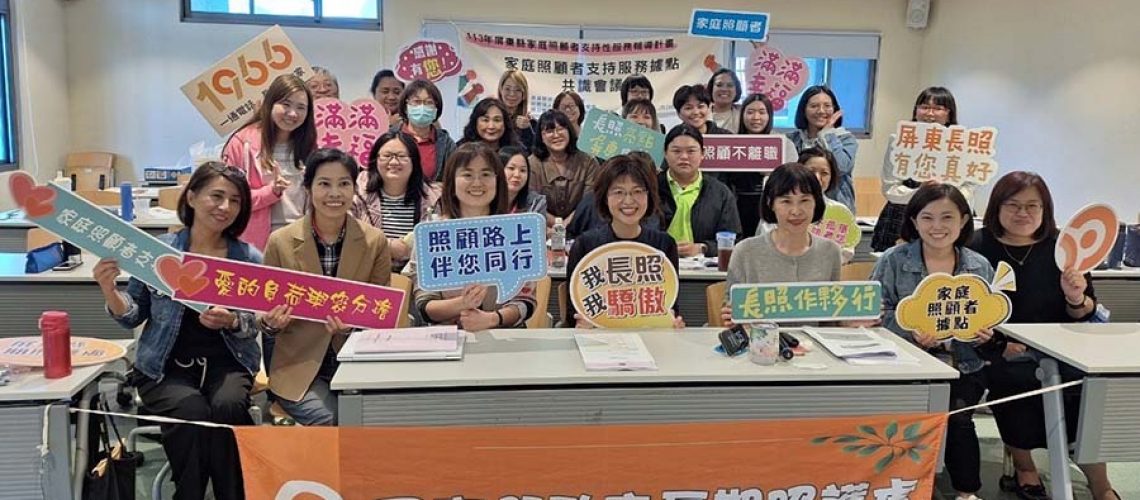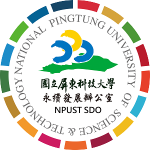According National Development Council projections, 20% of Taiwan’s population will be 65 years or older by 2025, meaning that it will officially become a super-aged society. To prepare for this imminent challenge, the country is developing supportive measures related to long-term care and elderly care, with family caregivers playing the most important role. Hoping to add depth to the services, the Pingtung County Department of Longterm Care has entrusted the Social Welfare Association of Taiwan to coordinate with Professor Shan-Ru Chao of the Department of Social Work at National Pingtung University of Science and Technology (NPUST) and Dr. Chi-Fa Hung of the Kaohsiung Chang Gung Memorial Hospital. Together they will work to improve the professional capabilities of home care workers, and equip them with skills to formulate treatment plans and link resources.
On February 29 (2024), the NPUST Sustainable Health Care Center held a “Consensus Meeting on Family Caregiver Supportive Service Stations” at the South Building of Pingtung County Government, bringing together directors and specialists from the county’s family caregiver support service agencies to participate in the conversation. Professor Chen-Fen Chen of the Department of Long-term Care at the National Taipei University of Nursing and Health Sciences was also specially invited to give a speech on the “Development and Transformation of Family Caregiver Service Centers”.
The special consensus meeting was held to discuss base operation models and various service plans, and to allow the members of various types of service stations in Pingtung County to get to know each other, share information, and promote mutual cooperation. As part of the “Pingtung County Family Caregiver Supportive Service Counseling Project”, the Taiwan Welfare Society will work with the NPUST Sustainable Health Care Center to assist with services, including professional knowledge improvement and course planning. Since the promotion of Longterm Care 2.0 began, key strategies were developed to improve family caregiver referrals, knowledge and skills training, respite services, emotional support services, information provision, and other services that will improve the capabilities of family caregivers and their quality of life.


